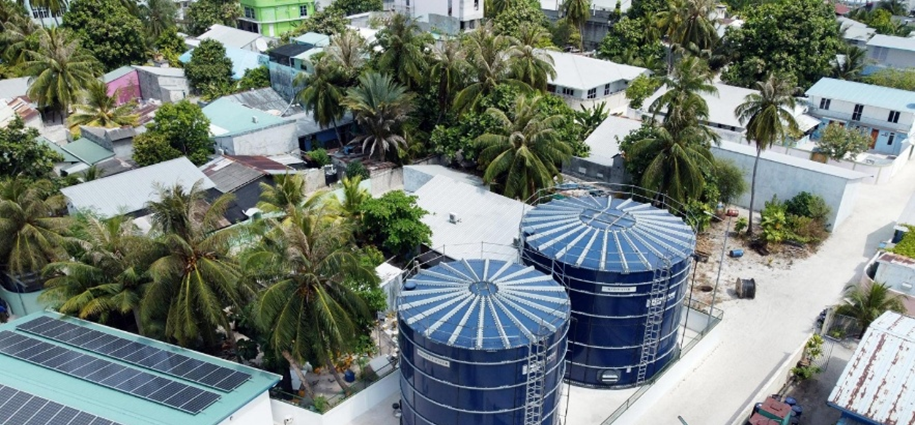現地の声:国際機関報告
2015.11.05

| 案件名 | モルディブにおける長期的で持続可能な水供給・学習・能力強化を通じた、脆弱なコミュニティの支援 (FP007) |
|---|---|
| 資金提供実施者 | United Nations Development Programme |
| 投融資規模 | 28.2百万米ドル、うちGCF分23.6百万米ドル |
| 概要 | 雨水利用と海水淡水化を組み合わせた分散型・統合型の淡水供給システムを構築し、モルディブの25の島々に年間を通じて淡水を安定供給するプロジェクト。 |
| マクロ情報 (2022年) |
GDP(百万米ドル) : 3,286,000 人口(百万人) : 0.336 1人あたりGDP : 9,766 |
| 関連資料 | https://www.greenclimate.fund/project/fp007 |
Long-term, sustainable impact on water security, learning, and capacities for vulnerable communities in Maldives
Partner: United Nations Development Programme (UNDP)
GCF financing: USD 23.6m
Total financing: USD 28.2m
By constructing decentralized and integrated freshwater supply systems that use rainwater harvesting and filtration combined with reverse osmosis desalination plants, this Green Climate Fund-backed project aims to bring reliable year-round freshwater to 25 outer islands in the Maldives. This increased water security by reducing local reliance on transported water had also lowered plastic pollution by 50 per cent.
The project reduced the number of targeted islands from 49 to 25 due to overly optimistic estimates during design, upgrades in integrated water resource management technologies, increasing costs under the COVID-19 pandemic, and other implementation snags. Yet the project reached the number of beneficiaries it had originally planned, with scalable interventions and indications of paradigm shift in the sector. Some activities exceeded initial expectations (e.g. knowledge sharing, learning, capacity development). It will take time to realize the full effect of these efforts, some of which are not possible to measure during project implementation. For example, many of the groundwater recharge activities will be hard to measure until years into the future.
The project developed and initiated a strategy to transfer ownership of integrated water resource management systems to utility operators. Ten of these systems have been transferred to one of two state-owned utilities. GCF supported initial investments, but later investments in operations, maintenance, and monitoring by utilities will be necessary for lasting impact and paradigm shift in the sector.
Climate-sensitive integrated water resource management designs are now being used in communities across Maldives, and the project contributed to greater awareness and capacities among government entities, especially the Water and Sanitation Department in the Ministry of Environment, Climate Change, and Technology. Groundwater studies carried out by the project were the first of their kind and will inform future water investments and activities.
ⅰ冒頭写真:An integrated water resources management system in the Maldives
Credit: UNDP / Ashwa Faheem

